Is Plant Protein Better Than Animal Protein?
Author: Daniel Agarwal
In a world becoming increasingly conscious of health and sustainability, the debate over dietary protein sources has never been so heated. This is only natural considering the wide array of biological processes protein is involved in. They function as hormones, enzymes, repair tissue, support muscle contraction and serve our immune system as anti-bodies. Many people associate protein consumption with meat consumption. However, with the rise of vegetarianism and veganism the public perception is shifting: Could plant protein be a viable alternative or an improvement on animal protein? This blog will compare the nutritional benefits of both sources and provide you with a new perspective when assembling your plate.
What is protein?
First of all, we should define what protein is. Protein is one of three macro nutrients in our body, the other two are fat and carbohydrates. They are incredibly diverse and play numerous vital roles in the human body. Proteins are made up of chains of amino acids, which are like the alphabet of the protein language. Each protein has a unique sequence of amino acids, giving it it’s specific structure and function. The largest protein in our body, titin, which is responsible for the passive elasticity of muscle, is composed of around 27,000 amino acids. Out of the 20 different amino acids in our body, 9 are considered “essential”. Our body cannot produce these essential amino acids, so they must be acquired through our diet. There are also 8 conditionally essential amino acids which our body may not be able to produce enough of due to stress, disease or age.
The British Heart Foundation recommends adults a daily consumption of 0.75g protein per kilogram of body weight which adds up to around 45g for women and 56g for men. In the UK we exceed this “limit”, consuming around 76g protein per day. This increased protein consumption is not necessarily bad; excessive protein is usually just converted to energy or excreted in the urine. However, negative health effects can occur depending on the source of protein. To understand this, we need to look at the nutritional profile of both animal and plant protein.
Do plants or meat have more protein?
First let’s compare the amount of protein found in different plant and animal products. To do this we will be comparing servings of some protein rich products the British Nutrition Foundation suggests.
Animal protein sources
|
Protein source |
Amount of protein in g |
Serving size |
Calories |
|
Lean rump steak |
40.3g |
130g |
310 kcal |
|
Chicken breast-grilled |
38.4g |
120g |
178 kcal |
|
3 fish fingers |
12.9g |
90g |
164 kcal |
|
2 eggs |
11.3g |
80g |
172 kcal |
|
Semi-skimmed Milk |
4.4g |
125ml |
58 kcal |
Plant protein sources
|
Protein source |
Amount of protein in g |
Serving size |
Calories |
|
Soya mince |
19.4g |
100g |
100 kcal |
|
Feisty Soda |
12g |
250ml |
63 kcal |
|
Lentils, beans and other pulses |
~10g |
120g |
130 kcal |
|
Unsalted nuts and seed |
~4.1g |
20g |
125 kcal |
|
Reduced fat hummus |
3.4g |
50g |
104 kcal |
As you can see these examples contain anywhere from 3.4g to 40.3g protein amounts. One especially protein-rich product is chicken breast, which offers an impressive 38.4g of protein per serving. However, this doesn’t provide the full picture. At first glance it seems that chicken breast provides almost double the protein as the plant-based soya mince, but we need to also take calorific density into consideration. While a serving of soya mince has 100kcal, a portion of chicken breast provides 178kcal (78% more calories). Factoring this in, many comparably lower calorie products, including plant products, Feisty Soda and milk, contribute a high protein to calorie ratio and perform substantially better. Think of it as your daily 2000kcal being efficiently spent.
Lean rump steak offers a similar amount of protein to chicken breast, while having about 75% more calories than chicken breast and triple as many calories as a serving of soya mince, lowering its calorie to protein ratio significantly. A general trend is that animal products tend to be calorie dense and protein rich, while plant products are generally less calorific (with maybe the exception of nuts and seeds) and can contain high relative amounts of protein. Neither is necessarily bad, but this aspect should be taken into consideration when planning your meals. It is crucial not to value food purely based on their protein content as their micronutrients are equally important.
Benefits of plant protein
Plant protein nutritional profile
There is an age-old myth that plant-based diets don’t contain enough protein. Yet, this could not be farther from the truth. There are bountiful plant-based protein options including seeds, nuts, grains and pulses (lentils, beans etc). Plant protein is classified as an “incomplete protein” meaning one source doesn’t contain all 9 essential amino acids. There are only a few exceptions, which are complete proteins including peas, quinoa and soy products (tofu, edamame and tempeh). While “incomplete protein” has a negative connotation, you do not need to get all essential amino acids from one source. As long as you incorporate various different plant protein sources, you will gain enough of each amino acid and benefit from a spectrum of micronutrients.
There is an abundance of micronutrients in plant foods such as fibre, vitamins (A, C, E, K), minerals (iron, calcium, magnesium, manganese, potassium etc.) and antioxidants.
Fibre is unique to plant foods and is responsible for a long list of health benefits. This is interesting considering fibre cannot be digested by our body. Fibre helps maintain bowel health, controls blood sugar levels, lowers “bad” cholesterol and helps our gut microbiome flourish. According to Bowel Cancer UK, the consumption of fibre, for example whole grains, is associated with a lower risk of bowel cancer. The NHS recommends a daily intake of 30g fibre which most adults do not reach (20g on average). If you want to increase your fibre consumption you can switch to whole grain bread and cereal, stop removing the skin on fruit and eat more plant based.
The various vitamins found in plant foods also provide an array of benefits including boosting immunity, maintaining normal vision and sustaining bone health. Another advantage of plant protein are the antioxidants it often is bundled with. Antioxidants neutralise harmful free radicals, which result as waste from chemical reactions in the body. This prevents “oxidative stress” which is linked with heart disease, cancer, arthritis and stroke when unchecked.
Plant diets are heart-healthy
A big benefit of plant-based protein sources is that they usually are low in or do not contain saturated fats and “bad” LDL or cholesterol. This prevents high blood pressure, high cholesterol, inflammation and atherosclerosis (artery clogging). These factors reduce the risk for heart disease, type 2 diabetes and stroke. A study from the University of Oxford indicates that the risk of heart disease is roughly a third lower in vegetarians compared to non-vegetarians. Many sources even indicate that a plant-based diet coupled with a healthy lifestyle could reverse heart disease. A study from the Journal of the American Heart Association associates a plant-based diet with a 25% lowered risk of all causes of mortality. Because of this, there is a general consensus that the majority of daily protein should be plant-based.
Lactose-free
Plant-based protein also seems seems to be a more digestible option for many people. Around 65% of the world’s adult population are estimated to be lactose intolerant which can result in dairy products causing bloating, diarrhoea and nausea. This figure is reduced in western countries with, for example, 8% of UK residents or 36% of Americans having lactose sensitivities. Lactose-intolerance stems from a shortage of lactase enzymes which are needed to digest lactose. This has led to a whole market of different plant-based dairy product alternatives which often supplement important nutrients such as riboflavin (vitamin B2), calcium and/or vitamin D. When choosing plant-based alternatives (e.g plant milk) one should check for supplemented nutrients, and perhaps unwanted sweeteners, on the label.
Are anti-nutrients dangerous?
A prevalent argument suggests that plant protein sources are detrimental due to the presence of anti-nutrients such as phytates and tannins. These anti-nutrients have been proven to decrease the absorption of important minerals such as iron or magnesium. However, these usually only pose a real problem during periods of malnutrition (or diets purely limited to grain) and shouldn’t be actively avoided. Studies even attribute several health benefits to anti-nutrients including a reduced risk of kidney stones, cardiovascular disease and even cognitive dysfunction.
How to increase absorption in plant foods
While the absorption rate of minerals in plant foods is generally lower than animal products, there are a number of methods to increase the absorption of nutrients founds in plants. Soaking, fermenting and sprouting are a few examples of such preparation methods. Certain nutrients can also increase the absorption of others. Examples include vitamin C which can be found in citrus fruits, peppers or different legumes and beta carotene, which can generally be found in orange plants such as carrots or sweet potato. Studies show that adding vitamin C to a meal with spinach can increase your iron absorption two to threefold. Bear in mind this does not apply for heme iron (animal product iron). By utilising these combinations, you can maximise the full nutritional potential of grains, pulses and legumes.
Benefits of animal protein
Animal protein nutritional profile
It is common knowledge that most animal products contain high amounts of protein. These include but are not limited to beef, poultry, fish, eggs and dairy products. One of animal protein’s largest benefits is that they are considered “complete protein” meaning they contain all 9 essential amino acids. This ensures that your body has access to a diverse range of amino acids for miscellaneous physiological processes and makes it easy to cover your daily needs for each amino acid.
Furthermore, beef and other meats are often nutrient dense and contain different nutrients that can be less prevalent in plant-based foods. These include B vitamins, iodine, iron and zinc. B vitamins help maintain healthy brain function, iodine regulates your metabolism, iron helps with oxygen transportation and zinc plays a major role in wound healing. Vegetarians and vegans should be aware of plant-based sources for these nutrients and incorporate them into their diet (e.g. fortified foods). Vitamin B12 is especially scarce outside of animal products and should always be supplemented if you follow a vegan or a largely plant-based diet.
Higher Bioavailability
Additionally, animal protein has a higher bioavailability than plant protein. This means your body will absorb more animal protein than plant protein when consuming the same amount of protein from either source. Meat can also be digested quicker than vegetables or grains. Plant-based sources are rich in fibre and complex carbohydrates, which are harder to break down and can slow down the digestion process.
Protein and muscle gain
Many people link meat to athletic performance, and it is not unreasonable to do so. Protein consumption has an undeniable influence on muscle gain and maintenance. During physical activity muscle protein is simultaneously being broken down and being built up with protein consumption affecting both processes. Protein supplements can help with recovery and muscle protein synthesis and are generally considered to be most effective in a 30-minute time frame after exercise. Animal protein is likely more efficient on a gram per gram basis due to its high absorption rate. Despite this, there are several studies concluding an equal muscle gain in a vegan or omnivorous diet. This makes plant-based protein supplements noteworthy contenders after a workout. As previously mentioned, it is recommended to consume varied sources of plant protein to guarantee your needs for each amino acid.
Potential concerns with animal products
Saturated fats and cholesterol
It is important to note that there are many reasons to be cautious about animal product consumption. One reason are the well documented health risks associated with animal products. Meat, eggs, dairy and other animal products contain high amounts of saturated fats. Saturated fat can raise the amount of (“bad”) LDL cholesterol in your arteries which puts you at a higher risk for heart disease or stroke. In 2015 the International Agency for Research on Cancer (IARC) released a report where they classified processed meats such as salami or bacon as a group 1 carcinogen (i.e. a substance that causes cancer) and red meat as a group 2A carcinogen. Similarly, the World Cancer Research Fund International suggests limiting your red meat consumption down to “no more than three portions a week”. A limited amount of meat can have health benefits, but it is important to enjoy meat in moderation.
Environmental impact
An additional concern is the environmental impact of animal products. Cows and sheep produce a greenhouse gas called methane which is a greenhouse gas 30 times as potent as carbon-dioxide. This leads to animal agriculture making up 18% of global greenhouse emissions, which is more than the 13% of every single mode of transport combined.
Furthermore, animal agriculture uses a lot of land which results in problems such as soil erosion and deforestation. According to Greenpeace, cattle ranching is “the biggest cause of deforestation in virtually every Amazon country” releasing 340 million tons of carbon into the atmosphere every year. Another aspect is the high water demand associated with animal products. Most of this comes from the large amounts of crops they consume. A serving of English beef (375g) topside costs 33l of “blue water”. This is freshwater from groundwater, lakes or streams that could otherwise be used as drinking water.
Other problems that result from animal agriculture are loss of biodiversity, water pollution and the development of antibiotic-resistant bacteria. It is indisputable that animal agriculture poses countless environmental issues. Because of this, reducing the amount of animal products you consume is one of the easiest ways to lessen your environmental impact.
Factory farming
There are also many ethical considerations relating to animal agriculture. It is safe to say that most people consider factory farming bad, yet there are more than 1.000 mega farms in the UK (excluding Scotland) and the number is only rising. Those are factory farms holding at least 125.000 broiler chickens, 82.000 egg laying chickens, 2.500 pigs, 1.000 beef cattle or 700 dairy cows. Hens are kept in cages where they can barely spread their wings, pigs are housed on concrete floors, male chicks are grounded alive (chick culling) and many animals do not even have space to turn around. Paying close attention to the source of the animal products you buy in restaurants or supermarkets and reducing your animal product consumption is essential to reduce factory farming.
Why choose Feisty?
Everything considered, how could you (and the planet) benefit from Feisty? Feisty is a plant-based protein soda which offers two eggs (12g) worth of protein! Whether you are out for a jog or hitting the gym, post-workout protein can help boost your recovery. We pride ourselves on using hydrolysed pea protein which offers the benefits of plant protein while avoiding the associated downsides.
Powerful pea protein
The pea protein in Feisty is sourced from yellow split peas, which is one of the few protein isolates to be purely mechanically processed instead of chemically processed. One of the key properties of pea proteins is that it is classified as a complete protein containing all nine essential amino acids. It is also especially high in branched-chain amino acids (BCAAs) which can aid muscle synthesis. This can help shorten recovery time and reduce muscle soreness.
In one 12-week study, weight-lifting men who consumed 50 grams of pea protein per day gained the same amount of muscle as those taking whey protein. This indicates that pea protein powder may be just as effective at building muscle mass as more common dairy-based protein powders. It may be important to take into consideration that peas are relatively low in the amino acid methionine.
It is also important to mention that pea protein counts as one of the most sustainable sources of protein. Peas need far less water than animal products and many other crops. They also produce 90 times less carbon emissions for the same amount of protein from beef.
Additionally, pea protein does not contain any of the top eight allergens. No matter if your diet is omnivorous, vegan or gluten-free, pea protein is an accessible, sustainable and healthy choice.
High Digestibility
A big aspect that plays into the increased digestibility of our pea proteins is the hydrolysation process. In this procedure long amino acids strings are broken up into smaller chains (peptides). This type of “pre-digestion” helps increase the bioavailability and allows a swift absorption of the protein. This increased digestibility makes Feisty easier on your gut and helps enhance its recovery- boosting capabilities. The hydrolysation process is also responsible for the high protein concentration in relation to fat and carbohydrates. This digestible nature of hydrolysed pea protein makes it an ideal alternative for people struggling with irritable bowel syndrome or bloating.
No artificial ingredients
You are not alone if you suffer from an upset stomach or bloating after having a traditional protein shake. This can often be linked to the artificial ingredients in such beverages. Ready-to-drink protein shakes are full of emulsifiers, thickeners, sweeteners, and other additives. These are added for texture, taste, and shelf stability and can quickly accumulate in your diet. This can lead to harmful effects on your long-term health, including gut damage. Artificial sweeteners are one of the main culprits, which can cause digestive disorders and inflammation. To prevent this, Feisty uses no artificial ingredients, sourcing any flavourings from the fruits themselves.
Conclusion
Ultimately, both plant and animal products offer viable protein sources and can provide valuable nutrients. However, a more plant-based diet can offer more long-term benefits in terms of disease prevention and sustainability. Animal products can still have a place in a healthy diet, but it is important to consume them in moderation. At the end of the day, it is essential to make an informed decision that aligns with your health, preferences and beliefs. While some may prefer to incorporate both plant and animal proteins, others may opt for a plant-based or vegetarian lifestyle to support sustainability and health. Feisty, and similar products, provide us with the tools to make choices that are not only healthy but also sustainable. With the evolving environmental crisis, developing cellular agriculture and new alternative products, the future of protein is uncertain but exciting; we hope that you can join us on this journey.
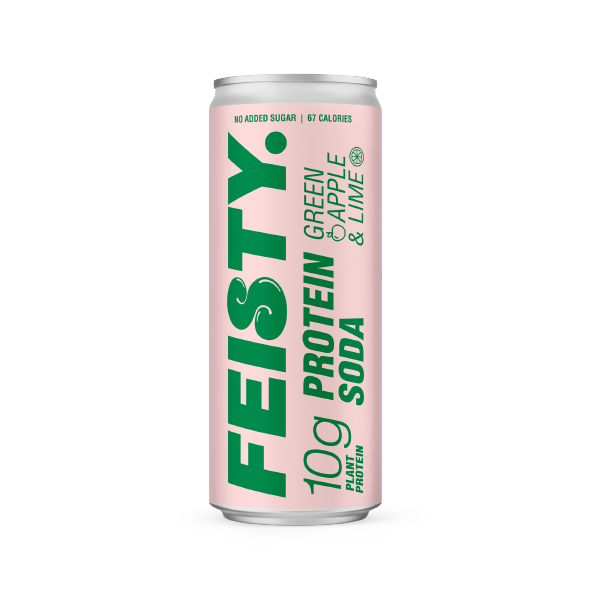
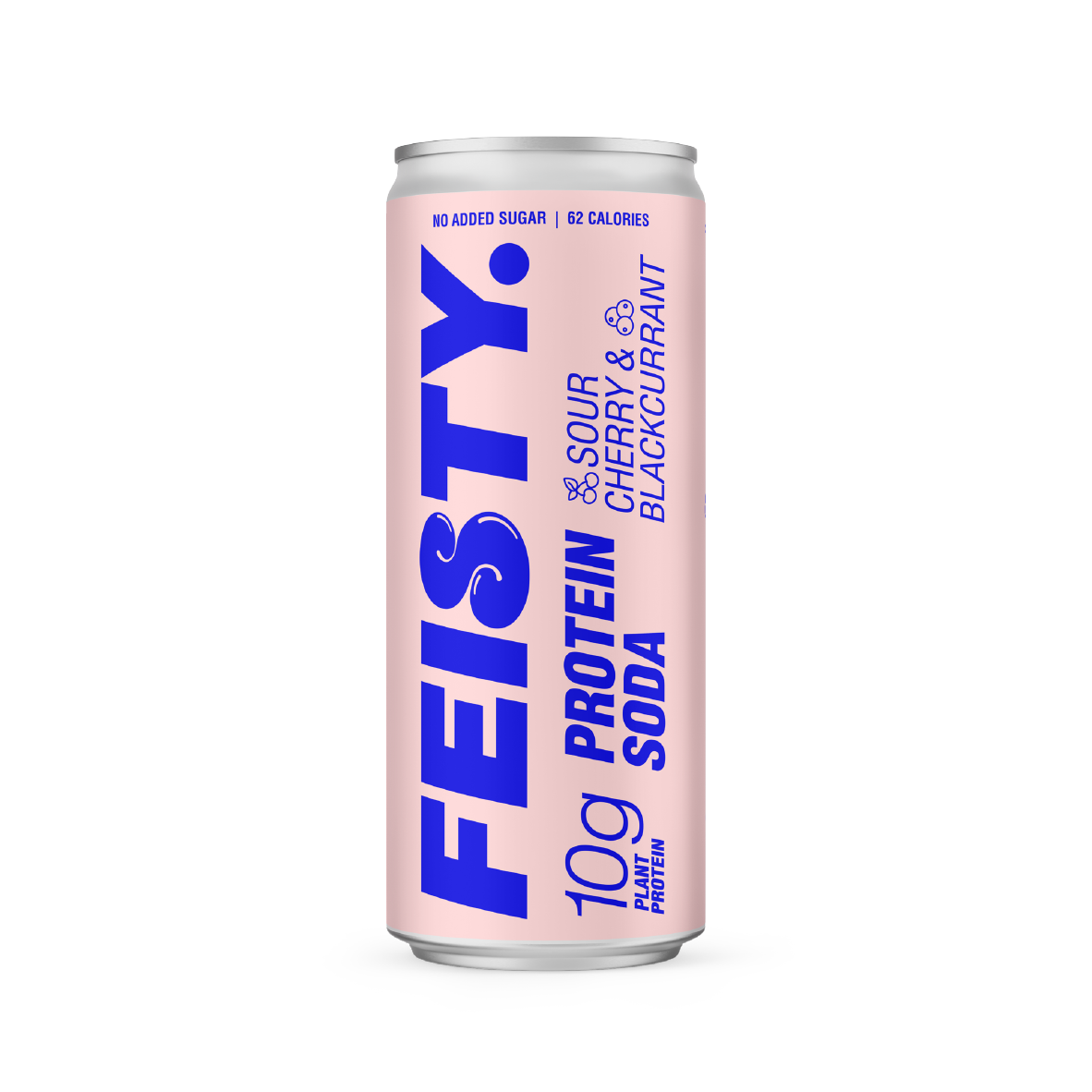
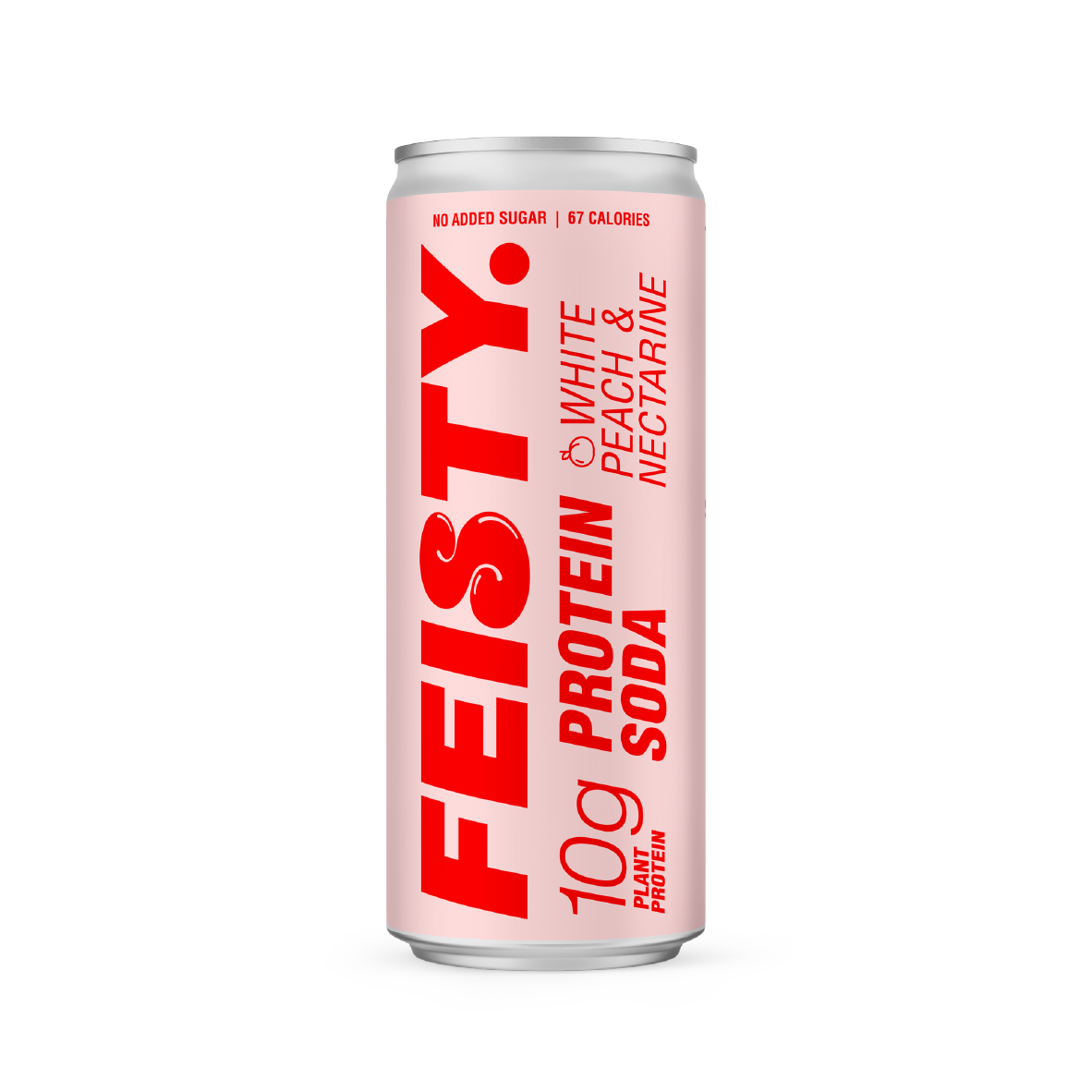
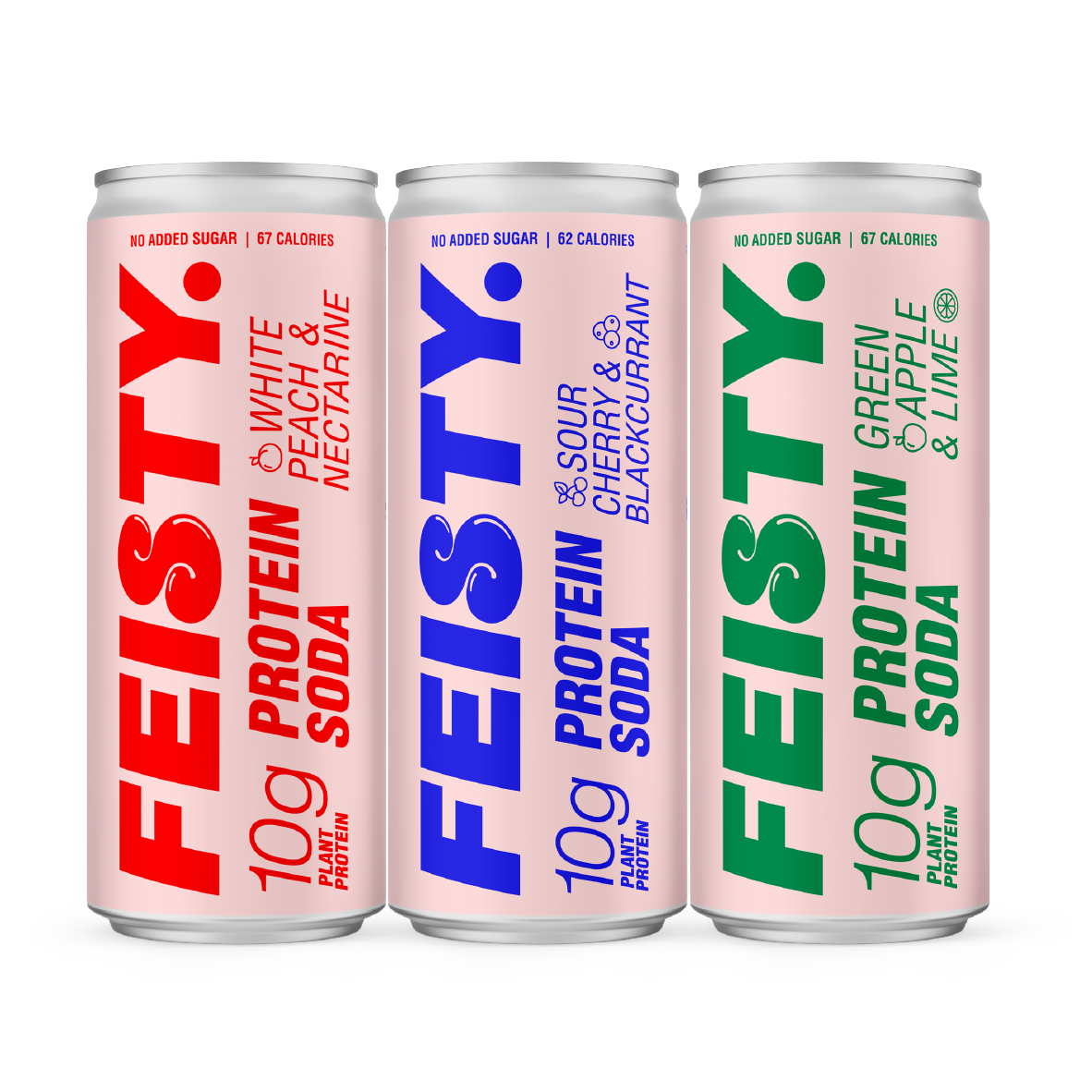
![Sicilian Lemon Lime Protein Soda [Limited edition]](http://feistydrinks.com/cdn/shop/files/FeistyDrinksProteinSoda10gramsSicilianlimelemon2_b8acb0e3-899b-45f9-bd87-d4215b80646d.jpg?v=1739397526&width=3000)
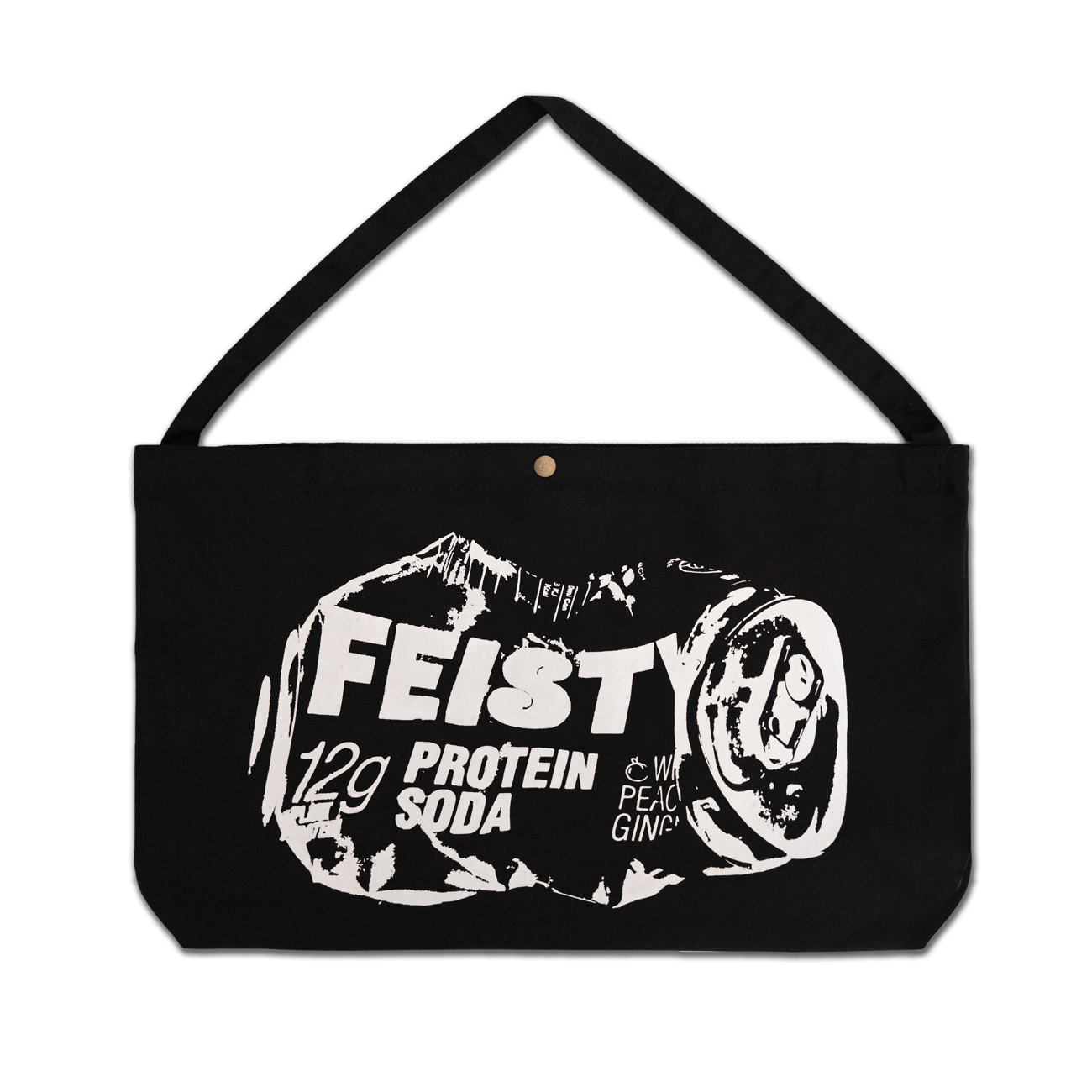


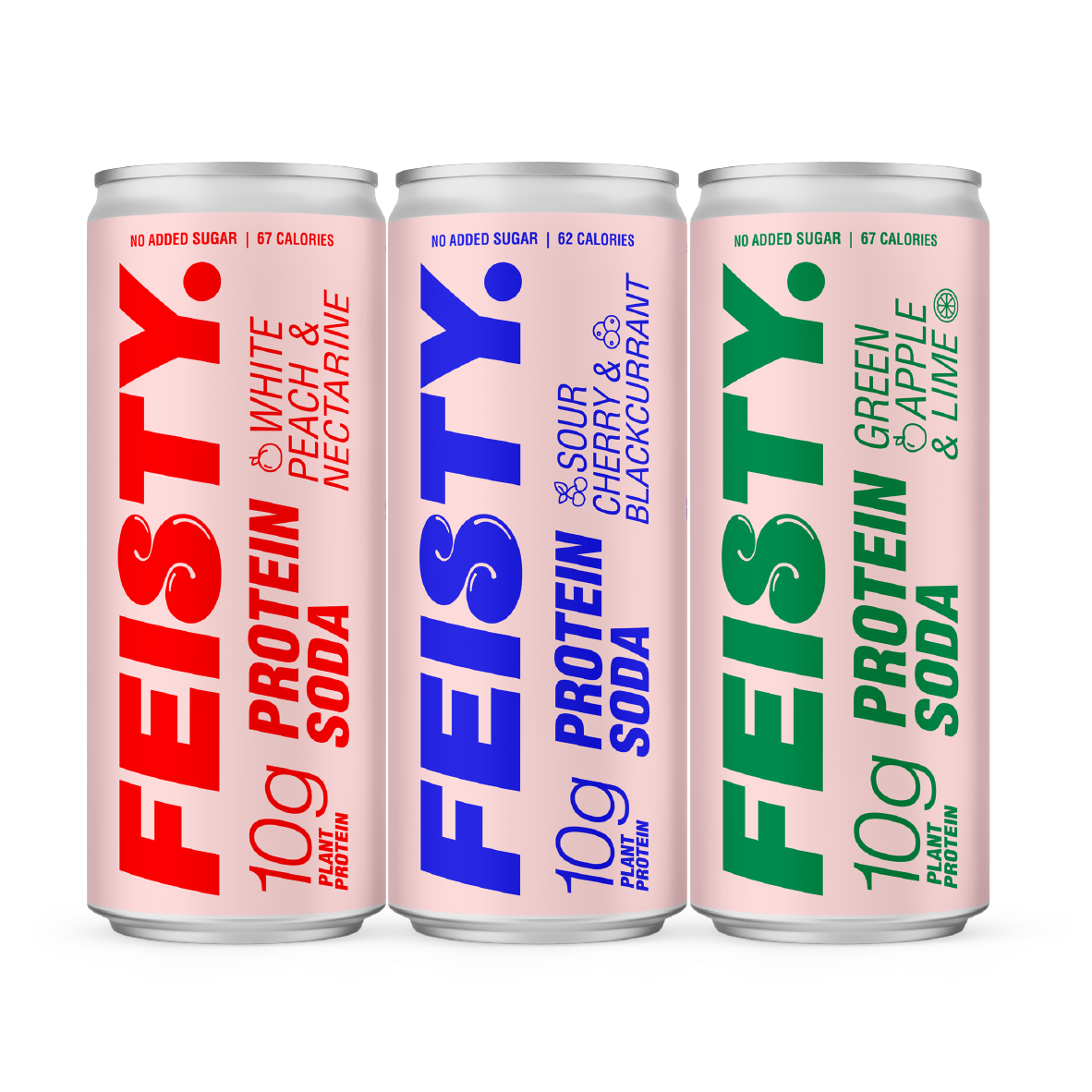
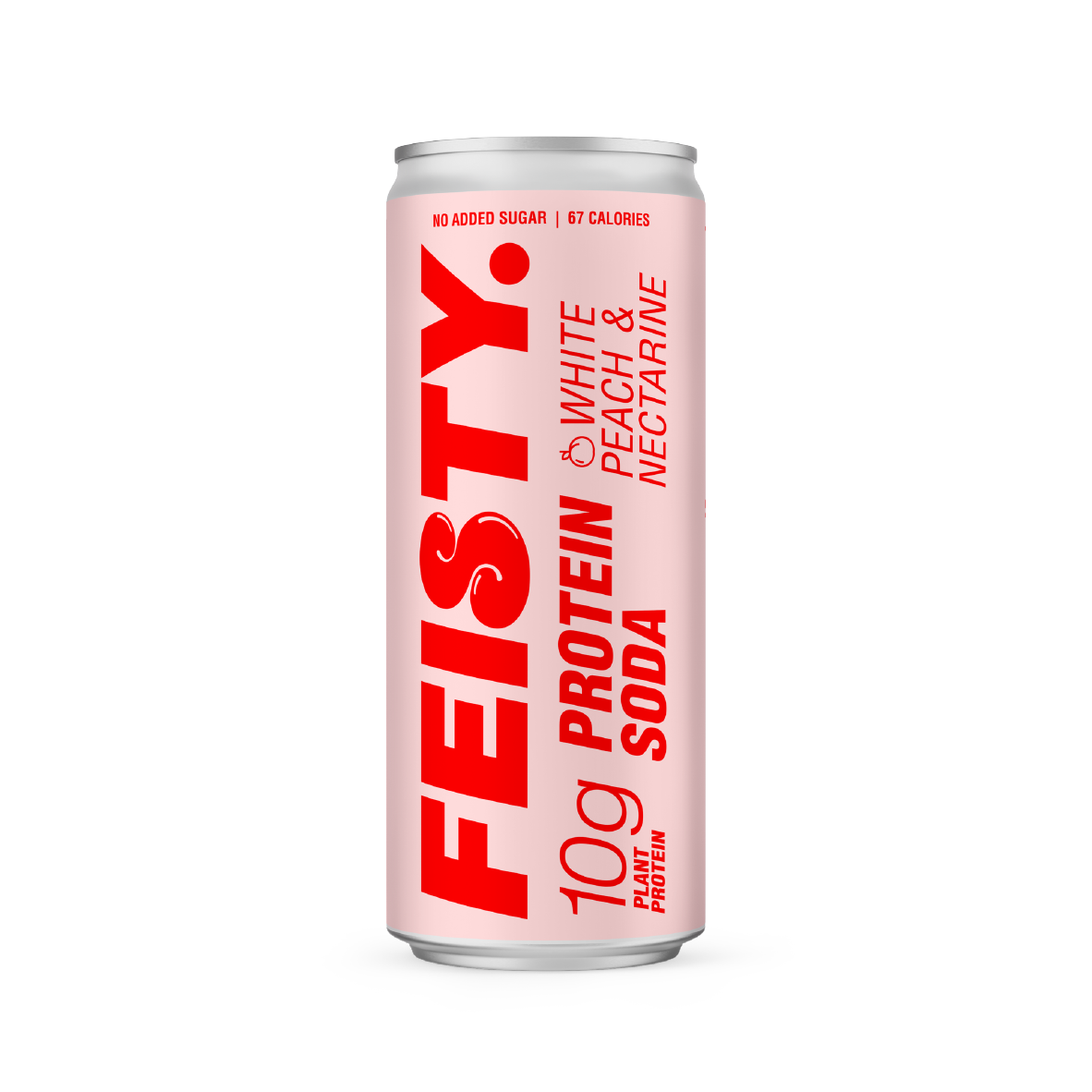
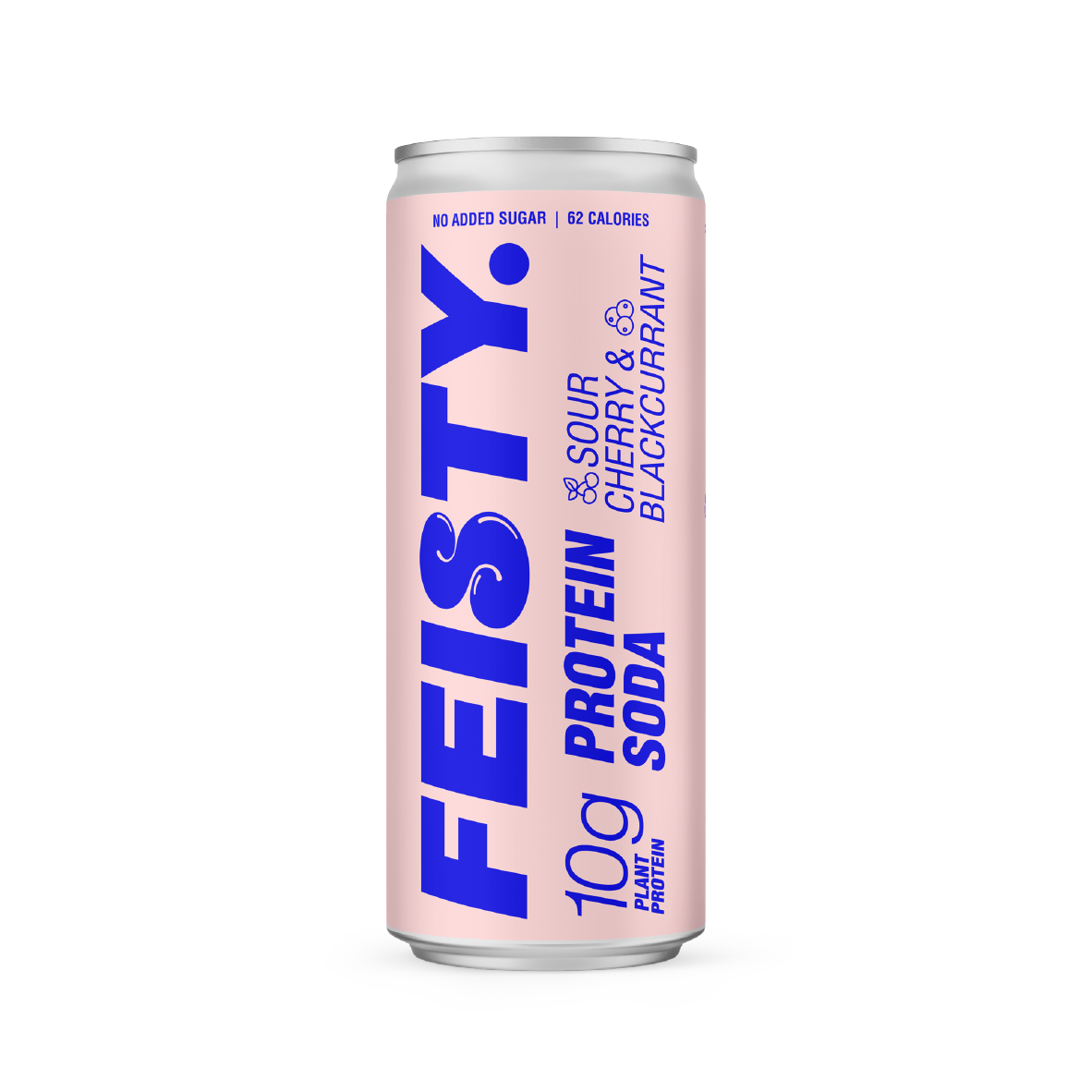
![Sicilian Lemon Lime Protein Soda [Limited edition]](http://feistydrinks.com/cdn/shop/files/FeistyDrinksProteinSoda10gramsSicilianlimelemon2_b8acb0e3-899b-45f9-bd87-d4215b80646d.jpg?v=1739397526&width=2000)
